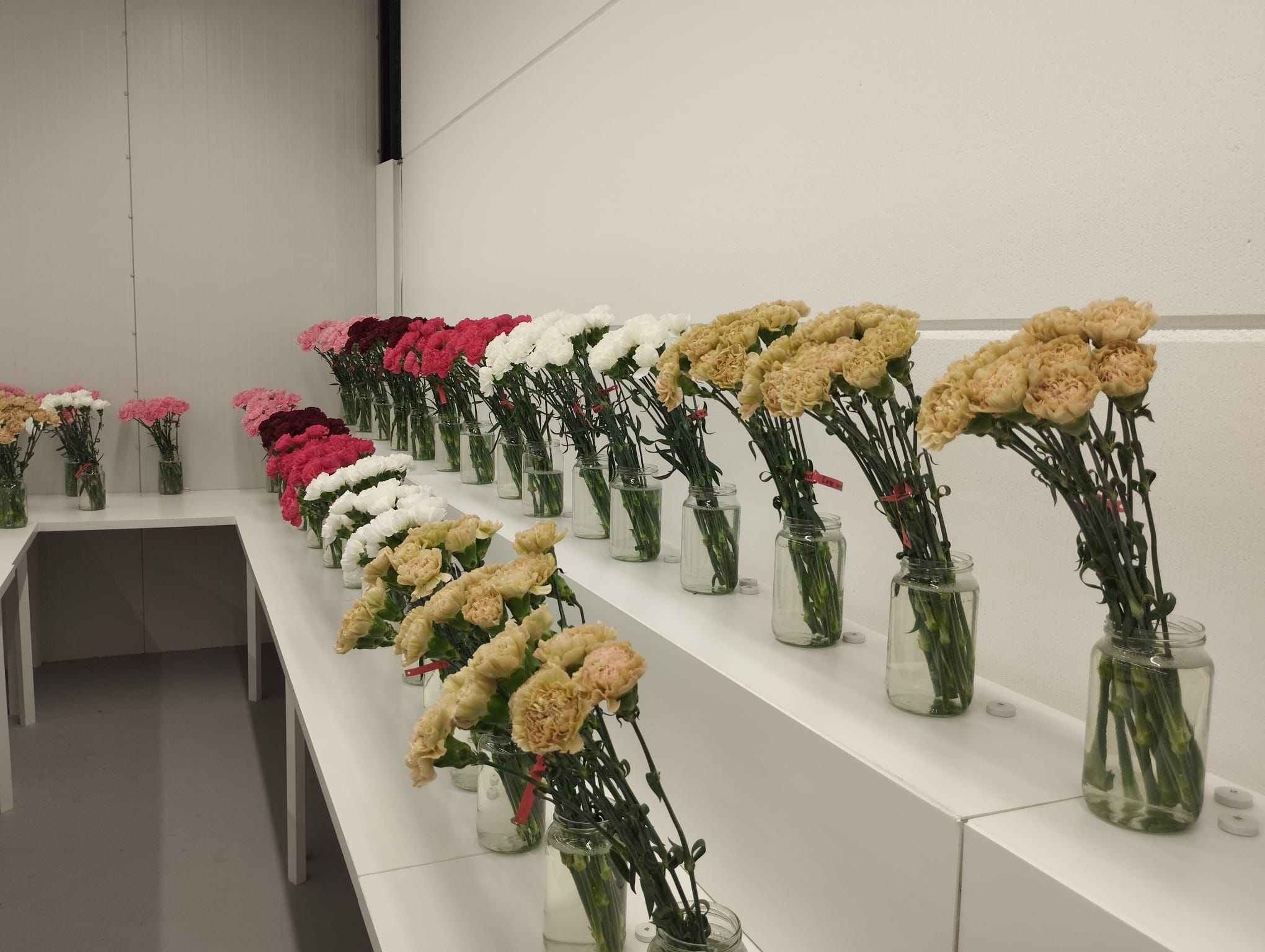
The market for carnations was worth $564M in 2022. According to “The Biology of Carnation” by the Australian Department of Health: “carnations have been the third most traded flower (both import and export) during the five year period from 2014 to 2018, behind rose and chrysanthemum.” Also, based on Volza’s Global Export data, 3,348 shipments of Carnation Flower were exported from Mar 2023 to Feb 2024 (TTM). (…) marking a growth rate of 27% compared to the preceding twelve months.”
Carnations are among the most popular flowers. Still, they are also highly ethylene-sensitive. Their premature flower drop and bud blast can lead to quality deterioration. Carnations are currently often treated with Silver to mitigate the effects of ethylene, an environmetally harmful solution.
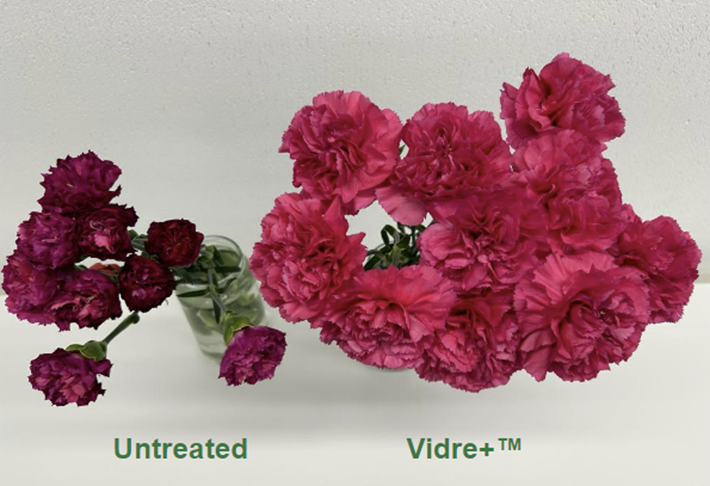
Photo: Carnations test
The Dutch Flower lab researched how Vidre+™ technology can affect cut carnations. In a detailed study, five varieties of Carnations — red, white, yellow, pink, and dark red (all from Kenya).
Vidre+™ stickers were applied inside the flower sleeve, just below the flowers. Then flowers were shipped by sea freight from Kenya to the Netherlands.
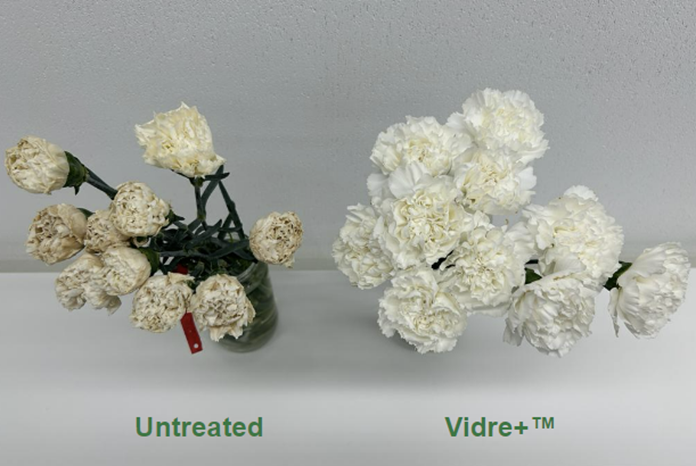
Photo: Carnations test, Day 10
The test included 10 days-long vase-life simulation in carefully controlled conditions, under time-lapse cameras.
The test results after 10 days revealed a significant reduction in ethylene sensitivity in flowers treated with Vidre+™ compared to untreated ones.
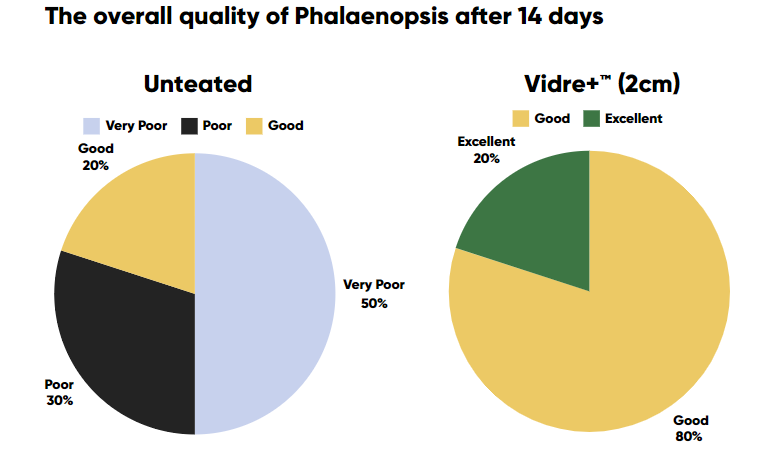
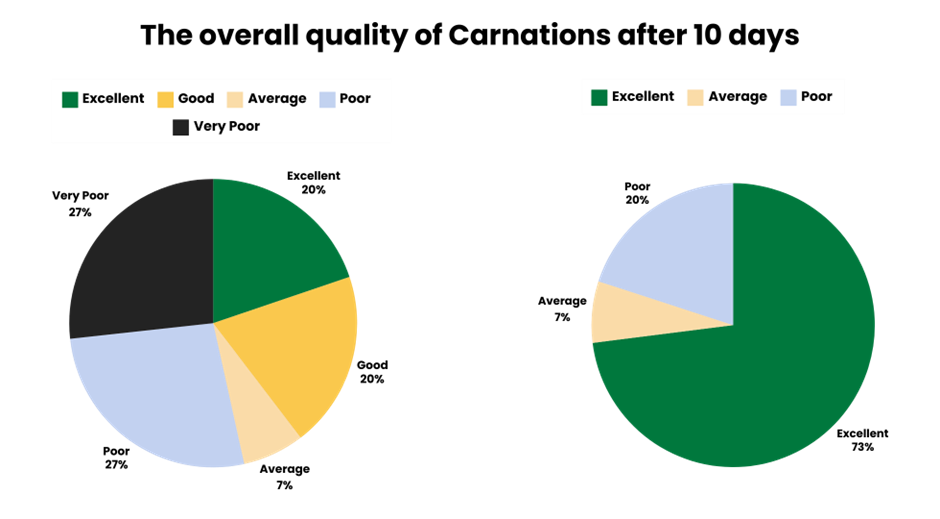
Graph: Overall quality of Carnations after 10 days
Vidre+™ helps maintain carnations in excellent condition for longer. Tests proved it extended petal longevity, improved color retention, and reduced wilting. By extending the vase life of cut flowers throughout the supply chain, Vidre+™ also reduces the amount of unsold or discarded flowers, minimizing flower waste.
Thank you for reading this article.
If you are interested in expanding your knowledge about Vidre+™ technology, follow us on LinkedIn or get in touch: krzysztof.czaplicki@freshinset.com.
**************************
*DISCLAIMER
The results presented in this press release are based on a single conducted study. Please note that these are preliminary findings. Additional studies may provide further insights and perspectives.
**Source: Research report: 50000837-538-02 conducted by a Flower Lab in the Netherlands, Date: February 2023
***Other sources: OEC.WORLD